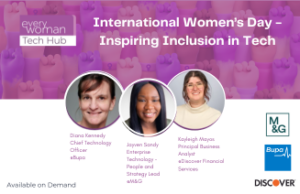Thirty years after psychologists first defined its relationship with career success, emotional intelligence is back in the spotlight.
Why? Because as artificial intelligence takes on more and more ‘hard skills’ in the workplace, ‘softer’ human skills are becoming our critical differentiator and highly sought after.* After all, Alexa might ask you how you’re doing today, but we’ll let you in on a little secret – she doesn’t really care.
EQ is simply an umbrella term for five distinct skills that can have a profound impact on your leadership potential. Take our quiz to discover which pillars of emotional intelligence you’re already utilising to the max, and where attention is required to ensure you’re always one step ahead of the robots.
Let’s get started: Tick all statements you agree with under each of the five sections below. We’ve cunningly disguised in anagram form which pillar they relate to for now, so that you’re not too guided by your preconceptions.
PART ONE: BE ‘FEARLESS AS NEW’

PART TWO: ARE YOU ‘GRATEFUL, NO LIES’?

PART THREE: YOU NEED A ‘VITAMIN TOO’!

PART FOUR: DON’T FORGET TO ‘PAY THEM’!

PART FIVE: ‘IS ALL SO SLICK’?

YOUR RESULTS
Most ticks for PART ONE?

Being so mindful, you’ve probably already figured out that ‘Be fearless as new’, is of course ‘Self-awareness’. Psychologist Daniel Goleman defined this as one of the key cornerstones of emotional intelligence. The self-aware leader has a firm grasp on both their talents and shortcomings, and recognises patterns in their own behaviour, understanding, without judgement, how that impacts themselves and others. Having self-awareness in bounds has countless career benefits, from knowing which external resources you need to draw on in order to plug the gaps in your own knowledge, to recognising when you’re approaching high levels of stress before it’s too late.
Scored low on this one?
To improve self-awareness, look for ways you can push yourself out of your comfort zone. In doing so you’ll learn more about your strengths and weaknesses, moods and feelings, values and blind spots.
Most ticks for PART TWO?

Congratulations, you’ve clinched one of the least understood pillars of emotional intelligence. ‘Grateful, no lies’ is, or course, ‘self-regulation’. Often confused with showing or feeling no or little emotion, self-regulators are, by contrast, complex feelers, who have simply learned to control or ‘regulate’ their emotions rather than be controlled by them. Anger, frustration or resentment may be perfectly justified in a situation, but you recognise there’s a time and a place to express these in that serves you and your environment better. A self-regulated leader can flex their working styles as needed, let go of negative emotions, and find positives in every situation – all essential talents in the business world.
Scored low on this one?
There are various strategies for improving self-regulation. Take time to recognise your emotions, being as explicit as possible about what you’re feeling and why. In difficult situations, dig deep to discover how you can adapt. Set goals and monitor your progress, perhaps keeping a journal to record thoughts as you go along.
Most ticks for PART THREE?

Whether or not you need a ‘vitamin too’, to succeed in business you most certainly need ‘motivation’ in the widest sense of the word. As a fervent goal-setter, you’re a ‘big picture’ person, able to stay focussed on long-term plans, finding the positives and opportunities where others may struggle to see beyond problems. None of this is to say you don’t experience down days, but when you do you’re able to recognise them for what they are, and soon bounce back, determined as ever to achieve all that you know you’re capable of.
Scored low on this one?
Tapping into your motivation requires some thought around what it is you really want to achieve and why. Motivated people suffer setbacks too, but they have all the right tools to be able to smash through inertia and forge ahead. Start small, setting tangible goals, monitoring your progress and remembering to go big on personal rewards when you hit that bullseye.
Most ticks for PART FOUR?

If you manage a team, you’ll definitely need to ‘pay them’ but you’ll also need to demonstrate bags of ‘empathy’. Don’t confuse empathy with sympathy; this pillar of emotional intelligence is about being able to really put yourself in another’s shoes, whether it’s an employee, your customer, your boss, or the person you’re at odds with in a heated discussion or negotiation. An empathic person is adept at reading others, while also recognising that they can’t possibly know exactly how the other person is feeling – hence why this type of leader doesn’t judge, and tends to give others the benefit of the doubt.
Scored low on this one?
Empathy is something that is innate to us as humans, but at the same time it’s a muscle we have to flex to keep it strong. Actively connect in to your own feelings; cut yourself and others some slack when mistakes happen; foster a wide network of people from all walks of life, using active listening in your communications.
Most ticks for PART FIVE?

‘Is all so slick’ when it comes to your ‘social skills’? Not a chance – you’re an authentic connector who thrives off creating meaningful ties. You’re likely to have a diverse network, while your immediate working environment is made up of close colleagues you can turn to in a crisis. You build rapport naturally, recognising that people are what really matter in business, and it’s that knowledge and the skills you bring to it that mean you have what it takes to persuade and influence – all essential ingredients of life as a successful leader.
Scored low on this one?
It takes time, effort and perseverance to develop social skills. It’s often assumed that people who are shy or introverted don’t have good social skills, but on the contrary, this pillar of EQ is about meaningful connection rather than being the life and soul of the office. Conduct a little audit of the key people in your network that you need to be able to influence, considering how you currently communicate with them and how you can flex your style to foster better ties.



